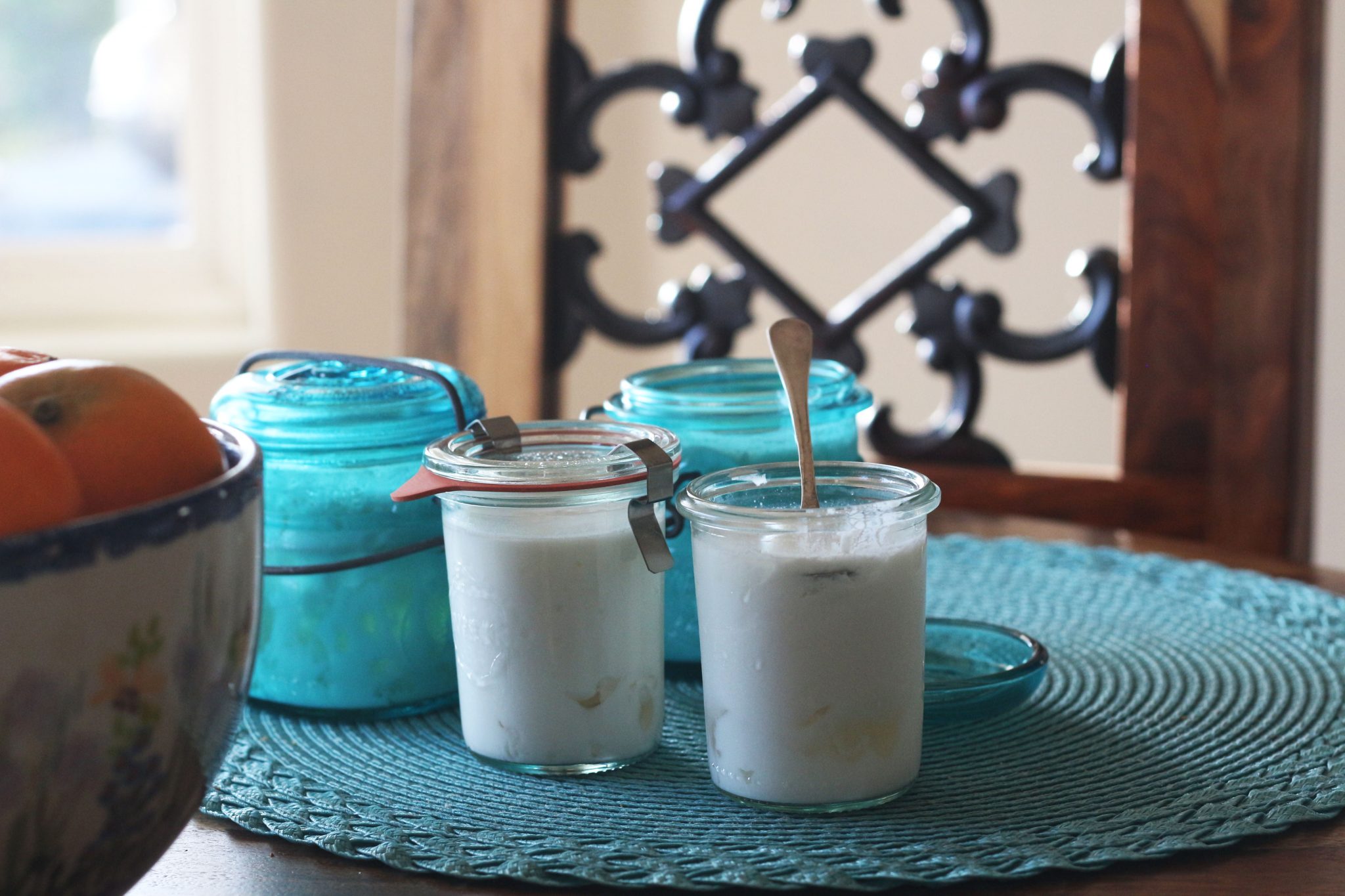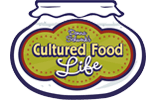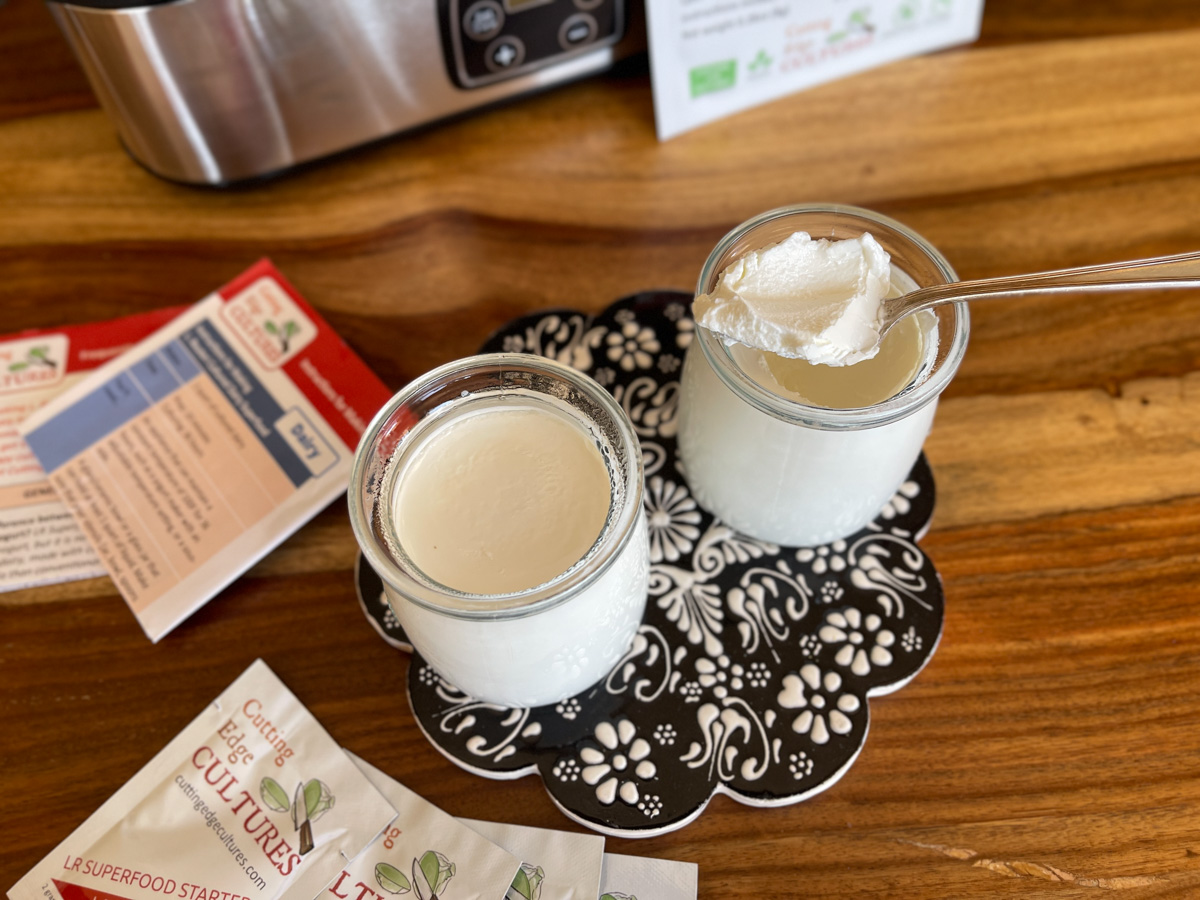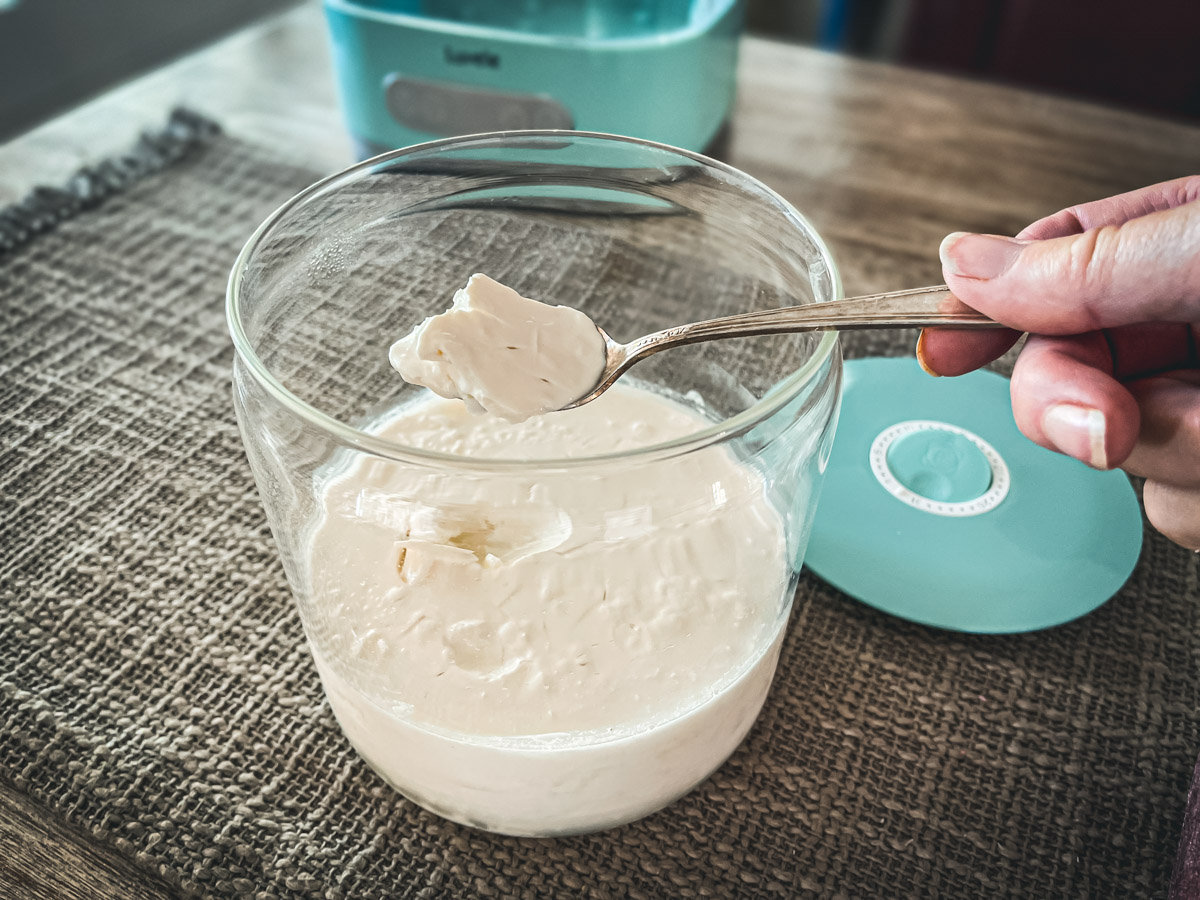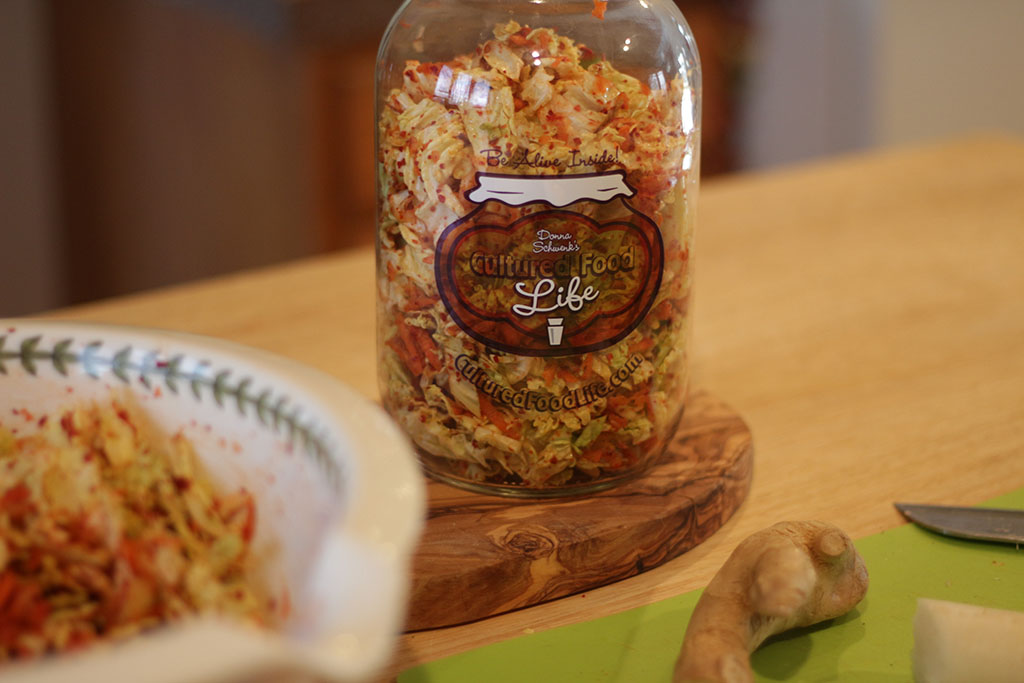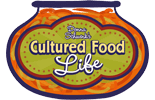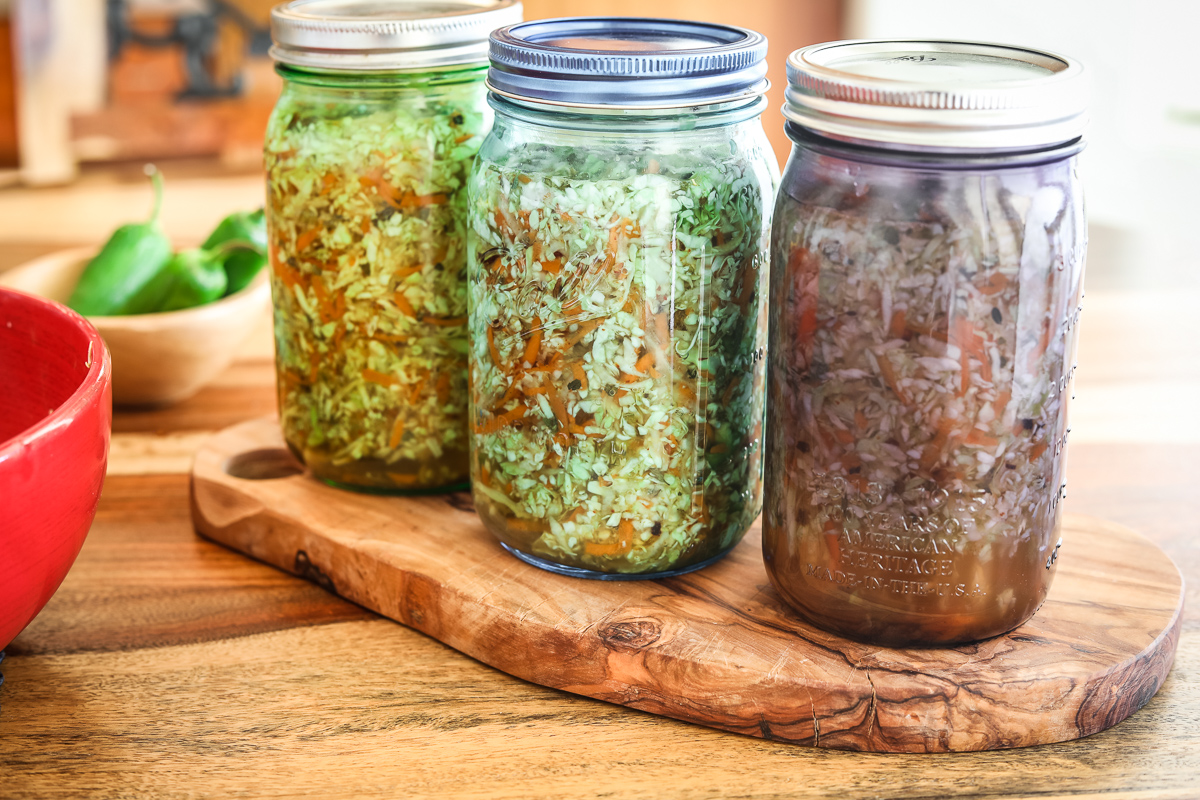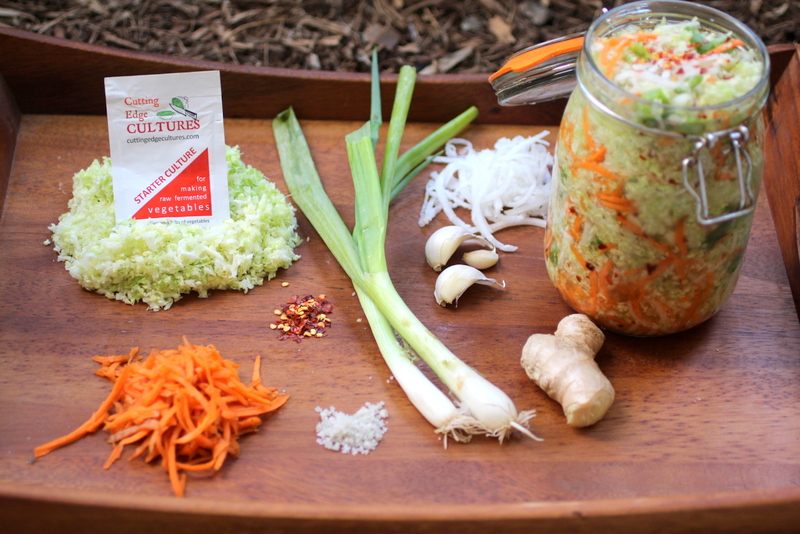
Asthma and Fermented Foods
Antibiotics and Asthma
One of the first friends I ever told about cultured foods had a little boy with asthma. Making and drinking a kefir smoothie daily allowed him to get off his asthma inhaler and live a normal life. I was quite surprised and thrilled that it worked so rapidly. After consuming kefir quite regularly, he stopped needing his inhaler. After about six months, his mom stopped giving him kefir for a few weeks and one morning found her seven-year-old son standing in front of the refrigerator with big tears running down his cheeks, saying, "Mom, I feel my asthma coming back. I need my kefir!" It was a testimony that kefir was a powerful food that worked like medicine.
The American Journal of Epidemiology tied asthma to the consumption of antibiotics. This study found that when doctors gave young children antibiotics, their risk of developing asthma before the age of six increased by 50 percent! In another study, researchers in the U.K., led by allergist Adnan Custovic, analyzed data from more than 1,000 children from birth until the age of 11. They looked at their medical records to determine how often doctors gave them antibiotics and how often they ended up with asthma. “We noted significantly higher risk of physician-confirmed wheezing after antibiotic prescription,” they wrote. There was a 70 percent increased risk for any kind of asthma case after the use of antibiotics. This speaks to the connection between healthy gut bacteria and the occurrence of asthma.
Asthma has been linked to the "hygiene hypothesis." Asthma can result when the immune system does not develop properly. Some believe this can be caused if a growing baby is not exposed to enough varied bacteria. With antibiotics and caesarean births happening more and more, babies don't get the diversity of good bacteria they need to build a healthy immune system.
Getting the Right Bugs, at the Right Time
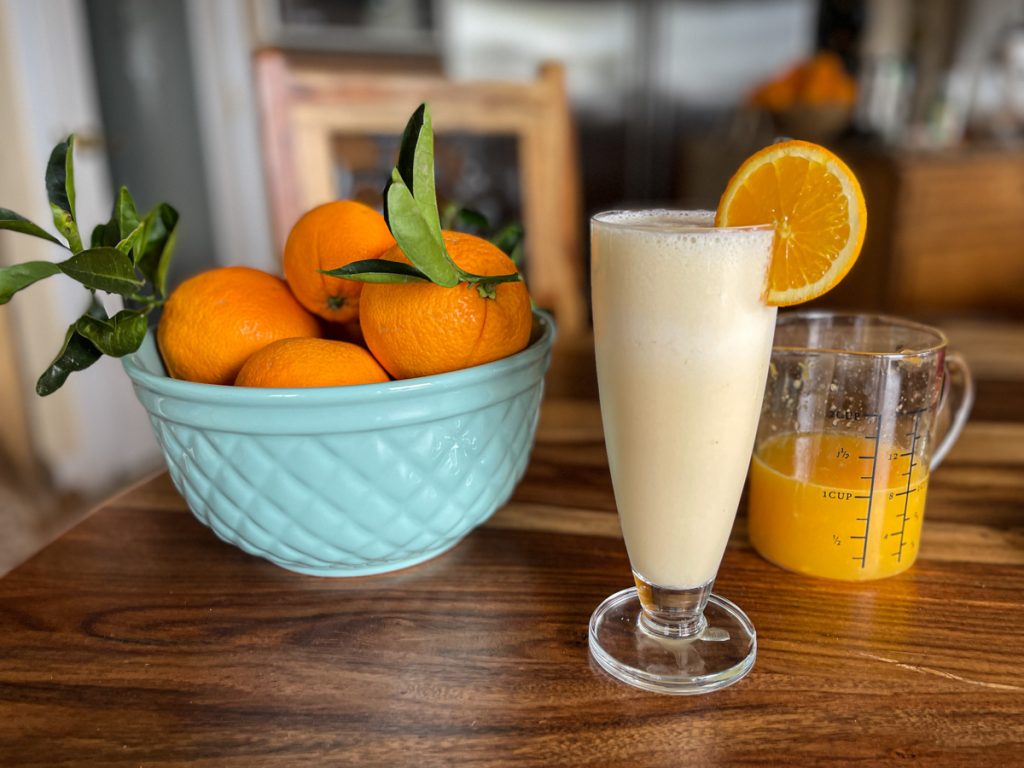
Researchers selected 319 children who had both allergic reactions (tested by skin-prick tests) and wheezing at age one. The comparison group of children did not exhibit any allergies or wheezing at age one. Children with allergic reactions have a much higher chance than those without these conditions of being diagnosed with asthma by age five.
The researchers used DNA analysis to identify bacteria in the stool samples and looked for differences in the bacteria present between the groups at the highest and lowest risk of asthma. After analyzing the bacteria in the gut, they wanted to see whether the differences in bacteria were linked to differences in the way the children's digestive systems worked.
The found 22 children who had both allergic reactions and wheezing by age one. These children had similar amounts and species of bacteria in their stool samples, compared with other children who did not have allergic reactions.[1,2]
Dr. Benjamin Marsland, from the University of Lausanne, in Switzerland, stated: "For a number of years, exposure to microbes has been linked with protection against asthma, a classic example is growing up on a farm and drinking raw milk." He said previous research was showing a mounting role for diet and microbes, and the first year of life is key. He added: "This new study adds weight to these observations and supports the concept that there are certain developmental windows in early life, where it's really important to get the right signals." A common factor in all studies so far has been the microbiota. In fact, making sure babies have the right bugs, at the right time, might be the best step towards preventing asthma and allergies."
Lactobacillus in Kefir, Yogurt, and Kimchi
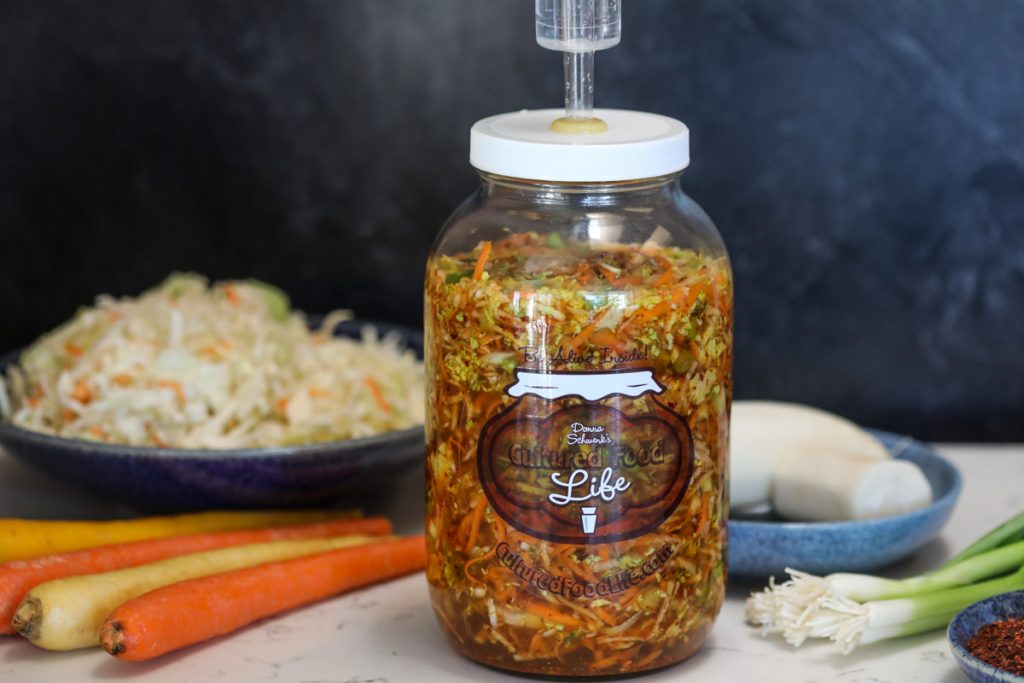
Many studies are showing that intake of fermented foods significantly enlarges the number of microorganisms in the diet, even by up to 10,000-fold.[3] Powerful activities of these living strains of microorganisms in fermented foods include many health-promoting benefits. Increased probiotic activity, food safety, and bio-availability of nutrients, along with the production of antioxidants and antimicrobial compounds, are just a few things fermented foods can do. They also synthesize bioactive and nutritional compounds and change the gut microbiota and the immune system, which can help prevent or reduce disease.
Daily consumption of around 100 grams of fermented foods like yogurt, kefir, and kimchi would be sufficient to achieve the dose of 1010 microbial cells. This amount is suggested to be necessary to change the gut microbiota and supply potential health benefits.
Kefir
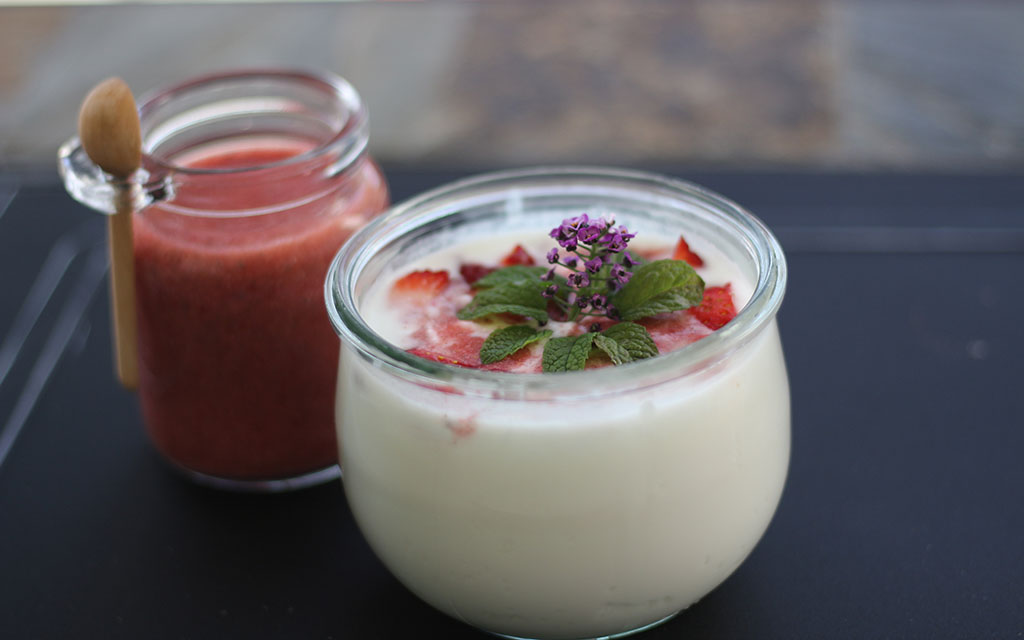
Kefir-derived LAB strains Lb. kefiranofaciens have been shown to exhibit anti-allergenic effects. It was also clearly demonstrated that Lb. kefiranofaciens is able to suppress the features of the asthmatic phenotype.
One study showed the anti-inflammatory and anti-allergic effects of kefir in a mouse asthma model. [5,6] Kefir significantly suppressed an induced airway hyper-responsiveness (AHR) to inhaled methacholine. (Methacholine is used as a test to determine whether you may have asthma. It is a cholinergic drug that causes wheezing and shortness of breath.) Kefir significantly inhibited the increase in the total inflammatory cell count induced, and the distressed lung returned to normal. Kefir showed anti-inflammatory and anti-allergic effects in this study and may be used as a new therapeutic potential for the treatment of allergic bronchial asthma.
Kimchi
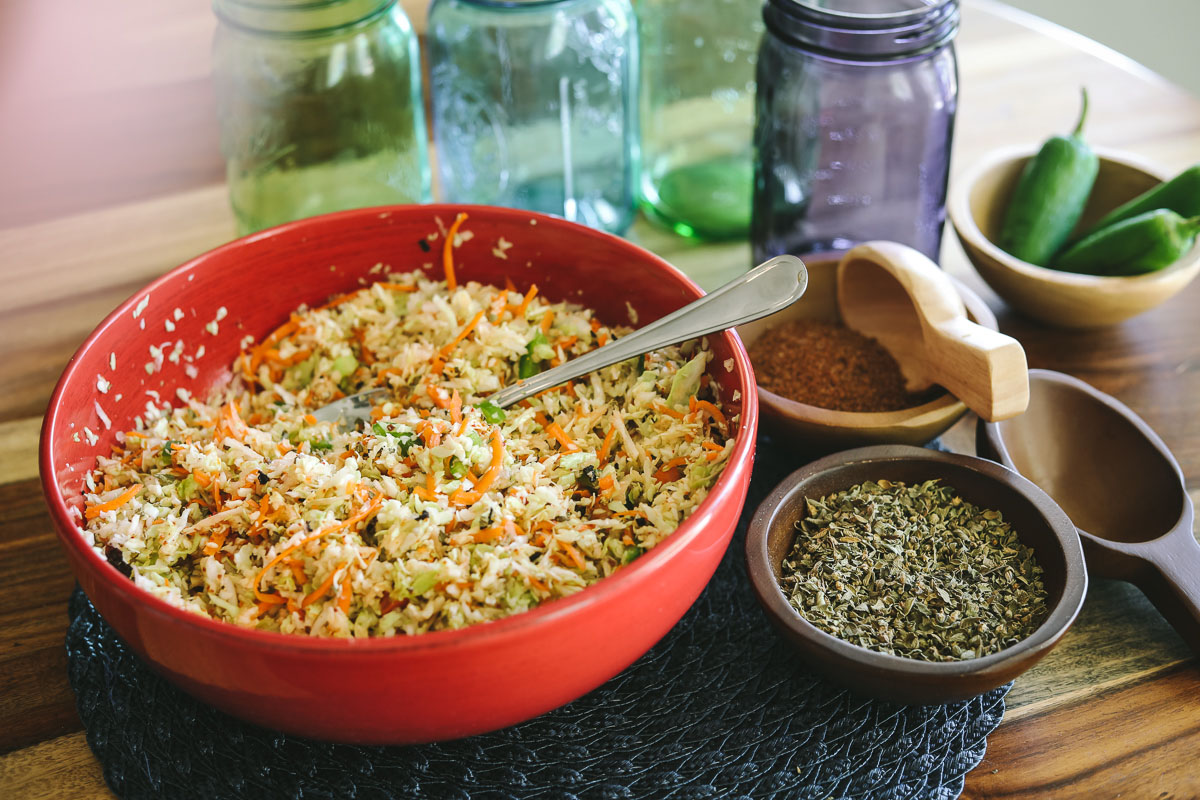
L. Reuteri and L. Gasseri Yogurt
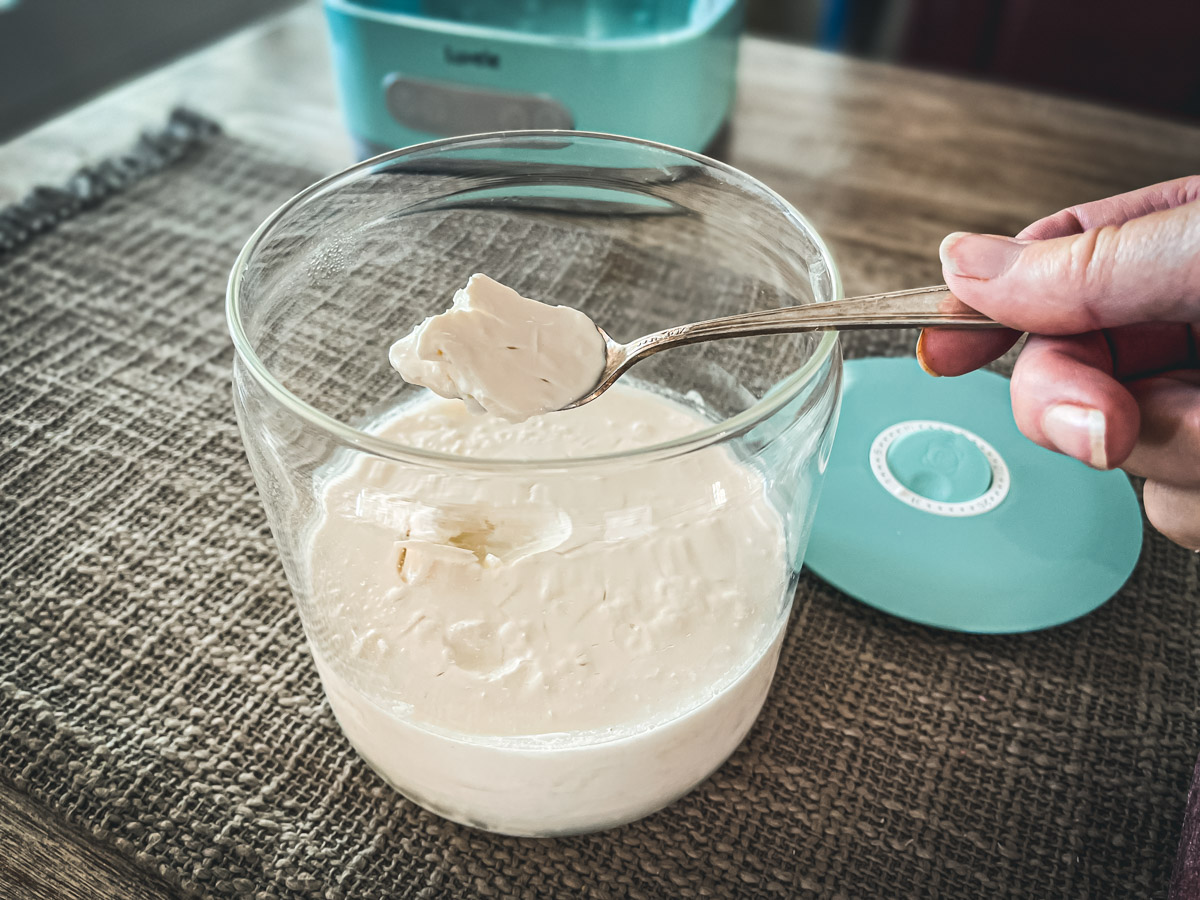
One study was done on 44 asthmatic patients aged 6–18 years. They were recruited from the University of Santo Tomas Hospital in the Philippines for a study period of three months. They were given supplements of L. reuteri, which was a similar strain to our LR Superfood Starter, and there were statistically significant improvements in their asthma as compared to those who received a placebo. [9]
A randomized, double-blind, placebo-controlled study on school children (age 6-12 years) with asthma and allergic rhinitis (AR) was done with L. gasseri supplementation. The eligible study subjects received either L. gasseri or a placebo. The results showed the pulmonary function and peak expiratory flow rates increased significantly, and the clinical symptom scores for asthma and AR decreased in the probiotic-treated patients compared to the controls. [10]
These studies were done with probiotic supplementation and not with the high CFU counts you would get in yogurt made with these strains. Restoring Lactobacillus is one of the best ways to help restore your microbiome, and since fermented foods work better than supplementation in the body, making and consuming your own high-count species of yogurt and kefir is not only fun but powerfully effective.
Asthma Attack Stopped
One of my readers emailed to tell me the juice from cultured veggies stopped an asthma attack dead in its tracks. One afternoon, she found herself having an asthma attack from a windstorm and had no inhaler to help her. Luckily, she had a cooler in her car with a jar of cultured veggies. She swigged the juice down as best she could since her airways were closing; and lo and behold, it worked! Her airways opened up and she could breathe clearly again without using an inhaler!
Read Nicole's Story
Nicole Neville
Debilitating tiredness - getting much, much better! Severe asthma symptoms - gone! Cravings for carbs and sweets - gone! I've been drinking kefir and kombucha on a daily basis for three short weeks. I don't think I've had this much energy and focus since I was a young child. I was diagnosed with Graves' disease (a thyroid disease) over 25 years ago. I've struggled with debilitating tiredness, brain fog, and depression (due to never feeling well) for almost the full 25 years. I was able to overcome depression about six months ago. However, since I've adopted probiotics in my daily diet, my energy has increased, my focus is much better, and my mood continues to elevate.
About fifteen years ago, I couldn't breathe very well and finally went to the doctor. I was diagnosed with asthma which was so severe the doctor said I should have gone to the emergency room. That day I was scared for my life, and that was the day I had to start taking inhalers, purchase a nebulizer (which was very expensive), and take allergy medicine.
About six and a half years ago, I got two chinchillas, Ruby and Daisy, and found out I was highly allergic to the hay they ate, as well as the dust they need to roll around in once a week, minimally. I had to turn my office into their play room because I had a terrible time breathing, which forced me to use an inhaler every day. I actually had to buy a face mask respirator to give them their bath, clean their bedding, vacuum, etc, which still didn't protect my lungs one hundred percent. A few days ago, I came out of the chilla's room after sitting on the floor playing with Ruby and Daisy for about 30 minutes. The moment I realized that I didn't have one asthmatic/allergy symptom and didn't need my inhaler blew my mind! Usually, if I just stepped into the room to do something, let alone let them jump all over me, I couldn't breathe, and my mouth, throat, and eyes would itch horribly. You had to pick my jaw up off the floor because I couldn't believe I could breathe perfectly well, and had zero itchiness.
Donna, I will be forever grateful that you agreed to come into this life and go down to the abyss so that you could heal yourself, your family, and ultimately millions of people. You've literally changed my life in three short weeks. God bless!
Recipes For Kefir, Yogurt, and Kimchi
These foods astonish me every day with what they can do. If you could read my emails and hear the many stories, you'd believe it, too. I first started eating them because they made my family and me better. What has transpired during the last two decades amazes and excites me. Probiotic foods give your body many of the beneficial bacteria that it needs. Fruits and veggies are the prebiotics that make them grow and flourish. I encourage you to feed those trillions of microbes that call you home. They were placed in you and around you for a reason, and they do things for you that you cannot do for yourself. Here are a few of my favorite kefir, yogurt, and kimchi recipes.
References:
- https://stm.sciencemag.org/content/7/307/307ra152
- https://www.bbc.com/news/health-34392522
- https://www.ncbi.nlm.nih.gov/pmc/articles/PMC4266855/
- https://www.ncbi.nlm.nih.gov/pmc/articles/PMC9002914/
- https://www.ncbi.nlm.nih.gov/pubmed/17869642
- https://www.ncbi.nlm.nih.gov/pubmed/19099229
- https://www.prnewswire.com/kimchi-found-useful-in-preventing-allergic-diseases/
- https://www.ncbi.nlm.nih.gov/pmc/articles/PMC3148229/
- https://www.jmust.org/elib/journal/doi/10.35460/2546-1621.2019-0079/pdf
- https://www.ncbi.nlm.nih.gov/pmc/articles/PMC9002914/
Listen To My Podcast
More and more studies are finding that gut health is one of the most important ways to prevent or help with Asthma. The species Lactobacillus is a powerful microbe that is helping many people who suffer from this ailment. Tune in to learn more.
Are you on the list?
Sign up today and I'll send you my free Getting Started Guide!
Each week I'll send you updates, tips, recipes, and more! You might even be a winner of my weekly giveaway! (starter cultures, memberships, and more!)
Come be a part of my cultured food family!



